Scary. Frightening. Terrifying. That’s what many people who read 1984 say about it. Why? Because this book imagines what life would be like under an all-powerful government. A government that sees everything, controls everyone, and even punishes people for having the wrong thoughts.
Big Brother. Thought Police. The Ministry of Truth. Many powerful ideas from George Orwell’s book have become part of our regular language. That may be why it is generally seen as one of the most influential books of all time. A true literary classic.
I remember reading 1984 in high school, as many teenagers do. Reading it again as an adult, it made an even stronger impression on me. Because today it is no longer imaginary that:
- Recording devices are with us everywhere (our smartphones),
- Private data is often secretly tracked (just look at the 2013 NSA leaks – DailyDot.com),
- Public conversation is mostly controlled on central platforms (like Facebook and Twitter).
What is 1984 about? The book is split into 3 parts:
- Part 1 is an introduction to the main characters and the future dystopia they live in. Winston Smith lives in a future London controlled by a totalitarian political Party named INGSOC, led by a man named Big Brother.
- Part 2 is about Winston’s secret love affair with a woman named Julia. The Party strictly controls all romantic relationships, so they must dodge constant surveillance and Thought Police.
- Part 3 is … (spoiler alert!) … about Winston’s arrest and torture. He is tortured and “re-educated” to love Big Brother.
Who was George Orwell?
George Orwell was born in 1903 in British India. He wrote many timeless books (FiveBooks.com), including his most famous ones: 1984 and Animal Farm. His books were sometimes banned by oppressive governments because of their political message.
To understand where Orwell is coming from, you must know that in his younger years, he fought in the Spanish Civil War against Fascists and Nationalists. But over time, he became disillusioned by the people on the other side, the Communists and extreme Socialists. Especially after he saw the Soviet Union transform under Stalin into a totalitarian state, no less evil than the Fascists.
1. Big Brother: The leader of a totalitarian political Party controls all parts of life
“Big Brother is watching you”
… read the posters that can be seen everywhere over London. On top of this message, there is a face with a thick black moustache. It is the face of Big Brother, the political leader of “the Party” that controls everything. The posters are there to remind everyone that the state, led by Big Brother, is always watching over them.
Some quick facts:
- The setting of1984 is an imaginary future London. It is no longer part of England, but a larger state called Oceania. (The book was written in 1948, so back then 1984 would have been the future.)
- The main character is Winston Smith, a 39-year-old who works at a mid-level government job. He always wears the blue overalls mandated by the Party.
- The story is about how Winston begins to feel discontent and rebel against the Party. He feels troubled about how they control everything and that everybody else appears to be happily obedient.
Many people call the government of this book “totalitarian,” which is defined by Cambridge Dictionary as “a political system in which those in power have complete control and do not allow people freedom to oppose them.”
The 4 Ministries
London is described as a place where everything is old, dirty, grey and falling apart. Actually, everything but four huge gleaming white buildings, which rise above everything. The buildings are home to the government’s four Ministries:
- The Ministry of Truth. They control all the media, newspapers, films, education and historical records. In other words, they control the “official truth” which is usually outright lies.
- The Ministry of Peace. They are in charge of war, soldiers, bombings… hardly peaceful.
- The Ministry of Love. They torture and force confessions out of political prisoners. They punish and “re-educate” people who don’t think correctly, according to the Party.
- The Ministry of Plenty. They control the economy and publish constant propaganda about how great everything is. In reality, people starve and there are huge shortages of basic products like razor blades.
As we can see, the names of these Ministries are very strange—the Ministries actually do the opposite of what they are called! This is a big theme in 1984: Language is used not to communicate, but to conceal. Not to express the truth, but hide it. When people such as politicians do this today, it is often called “doublespeak” (Wiki)—a word directly inspired by George Orwell.
The 3 Classes of People
The Party’s name is INGSOC, short for “English Socialism.” It has split society into 3 classes of people:
- The Inner Party. 2% of the population. They lead the Party and enjoy privileges not available to the other classes, including luxury apartments and real food that is high quality.
- The Outer Party. 13% of the population. They are all Party employees who are carefully monitored and brainwashed in the Party’s thinking. Their homes are falling apart and food tastes much worse.
- The Proles. 85% of the population. Their name is short for ‘proletariat,’ which means working class people. They are poor and less educated. They are controlled through endless distraction—like exhausting work, gambling, and junk entertainment.
1984 is often compared to the book Brave New World by Aldous Huxley. Both books talk about terrible future world, but they have one big difference. In 1984, the evil rulers stay in power through surveillance, force and pain. But in Brave New World, the rulers use pleasure, distraction and intoxication. In many ways, that vision of the future is even more disturbing.
Huxley wrote, “There will be, in the next generation or so, a pharmacological method of making people love their servitude, and producing dictatorship without tears, so to speak, […] so that people will in fact have their liberties taken away from them, but will rather enjoy it, because they will be distracted […]”
Read more in our summary of Brave New World – coming in the future!
In an imaginary future London, a political Party named INGSOC controls everything, led by the moustached leader Big Brother. A mid-level Party worker named Winston Smith is unhappy. Homes are shabby, food tastes terrible, and product shortages are common.
2. The Thought Police: They enforce order with mass surveillance and heavy punishment for ‘thoughtcrime’
People’s thinking and speech are carefully controlled by the Party so they can maintain power and prevent any future rebellion. Controlling thinking starts with childhood education and is reinforced with daily propaganda. Controlling speech is about censoring any ideas that go against the party and watching everybody almost all the time—mass surveillance.
In Chapter 1, Winston starts writing a diary, in an old blank book he found in a junk shop. In the world of 1984, this is a dangerous act because it’s a thoughtcrime that will lead to 25 years of punishment in a labour camp. Winston actually believed from the very beginning that he would eventually be caught, saying to himself “Thoughtcrime IS death!”
Thoughtcrime is the name for any thinking that goes against the political authorities. People who commit thoughtcrime are often “vaporized,” which means they disappear and all records of their existence are erased. 20 or 30 years before, there were some Great Purges where thousands of people were suddenly vaporized, including Winston’s own mother.
Some of the creepy methods of mass surveillance mentioned in the 1984 include:
- The Thought Police. These are undercover agents that are secretly watching everywhere. They actively hunt down people who don’t seem to completely conform to all the Party’s beliefs.
- Spies. Children are trained to be Spies, in organizations that resemble the Boy Scouts today. They are praised in state newspapers as “child heroes” when they turn in their own parents for unorthodox thinking.
(In Chapter 2, Winston visits a neighbour Mrs. Parsons, whose children are running around in official child Spy uniforms and pretending to viciously shoot traitors of the state. Many parents are afraid of their own kids.) - Telescreens. These are 2-way electronic screens in each home, hallways and workplace. So even at home, Party members are watched by the Thought Police for any signs of nonconformity. Even a slight lack of enthusiasm towards Big Brother could be punished for something called facecrime.
Societies always need to strike some balance between order and freedom, and it’s obvious the Party in 1984 went way too far in one direction. The famous psychologist Jordan Peterson talks about a related idea: how parents need to strike the right balance between safety and freedom while raising their kids.
In his book, 12 Rules for Life, Peterson says, “Question for parents: do you want to make your children safe, or strong?” As an example, he advises not to bother children who are doing something a little risky that expands their abilities, like skateboarding. Is it possible that protecting someone too much will block them from developing competence and confidence? The character traits they will need to live a fulfilled life in a world that unavoidably contains risks.
The Diary
In the diary, he writes down the date of 1984, and then his experience going to the theatre to see a violent war propaganda film.
Then he describes a daily ritual called “The Two Minutes Hate.” Basically a group of Party members stand and yell angrily at a big screen that is showing a video of Goldstein, the state’s biggest enemy. Over the two minutes, there is a steady buildup of rage, until everyone is red with anger and even throwing objects at the screen.
George Orwell uses this memory to introduce some main characters including:
- Julia. For a few chapters, she is simply called “the dark-haired girl.” She’s wearing the blue overalls of the Party, with a red sash around her waist that shows she is a member of the “Junior Anti-Sex League.” Winston suspects she is a fanatically devoted to the Party and secretly hates her.
- O’Brien. He is an intelligent, powerfully built man and member of the privileged Inner Party. Based on some small looks between them, Winston suspects he is not completely in agreement with the Party.
- Emmanuel Goldstein. He is a man with glasses and a goatee, the main subject of each “The Two Minutes Hate.” History says he began as a top Party leader, but then became a traitor. Now he is the leader of a shadowy organization called the Brotherhood that is trying to destroy the Party, working together with foreign enemies.
Most people agree that 1984 was inspired by the Communist Party of the Soviet Union (today it is Russia). Big Brother was obviously meant to resemble Joseph Stalin, the brutal leader of the Communists who also had a big moustache. Goldstein resembles Trotsky, an early communist revolutionary leader who later went against the Stalin government and was exiled from the country. Even many of the Communist tactics were the same: like erasing people from historical photos and encouraging children to snitch on their parents.
Any unorthodox thinking (against the Party) is called thoughtcrime and heavily suppressed, censored and punished. People are always monitored by Thought Police, citizen Spies, and telescreens that are always watching. Despite the risks, Winston begins writing a secret diary of his thoughts.
3. The Ministry of Truth: Winston’s job is to rewrite history in support of the Party
At 7:15 each morning, the telescreen whistles to wake up Winston, then guides him through physical exercises called “The Physical Jerks.” Then Winston goes to his job at the Ministry of Truth, a building with three thousand rooms and endless rows of cubicles.
Winston’s job at the Ministry of Truth is to rewrite past records according to what the Party says. The old versions are destroyed by being dropped into a “memory hole” on the side of Winston’s desk, then the “corrected” version is placed into the official archives.
This includes all the past:
- Newspapers,
- Books,
- Films,
- Photographs, and
- Speeches.
For example, in Chapter 4, Winston rewrites one of Big Brother’s old speeches to remove any mention of a man named Comrade Withers, who had recently committed a thoughtcrime and needed to be “vaporized” or erased from all records.
The Party’s goal in rewriting history was to help them stay in control. According to the records, no person or idea had ever existed that contradicted the Party.
The Ministry of Plenty, for example, was always publishing news/propaganda about how much better life was becoming and how great the economy was doing. Yet in real life, there were constant shortages of basic things like buttons, 50% of people walked without shoes, the food smelled bad, and everything was generally old, dirty and grey.
Since all the records had been changed, Winston struggled to remember whether life was really worse before the Party came to power, like all the history books claimed. Later in Chapter 8, Winston tries to speak with an old man in a pub, to find out if life really was worse before, but all he hears are incoherent rambling answers.
As people’s memories faded and the older people died, the lies would pass into history. George Orwell wrote a stunning paragraph about this…
Every record has been destroyed or falsified, every book has been rewritten, every picture has been repainted, every statue and street and building has been renamed, every date has been altered. And that process is continuing day by day and minute by minute. History has stopped. Nothing exists except an endless present in which the Party is always right.
Here’s an important part of the book: One time Winston did find concrete proof of one of the Party’s lies. You see, there were three men named Jones, Aaronson and Rutherford. They were early revolutionary leaders, but were later accused of being traitors. In 1965 they were arrested and confessed to their crimes. Years later, Winston saw them drinking at a cafe, and noticed their noses had been broken. (Heavily implying a forced confession.) Later at work, Winston discovered a photo of the men that contradicted their confession, because they had been in a different place than they said. Winston quickly slipped the photo down the memory hole out of fear.
Winston’s job at The Ministry of Truth is to correct old records, to make them match the Party’s current propaganda. The newspapers, books, films and other media are all continuously rewritten. There is no more history, but only convenient lies.
4. Newspeak: The Party controls thinking by controlling language, what words people are allowed to use
During a work break in Chapter 5, Winston goes to eat at an underground cafeteria. He beings talking to a coworker Syme, who is working on the next version of the dictionary of Newspeak (Wiki), which is the official language of Oceania. It is slowly replacing English, also called “oldspeak.”
Newspeak is a language designed not to add words, but to remove them from people’s vocabulary. The end goal is to make some thoughts impossible to have, which will prevent thoughtcrime.
For example, how can you talk about “freedom” if you never learned about the idea or the name for it? And people in the future would be totally unable to understand past literature, like Shakespeare.
Some other interesting Newspeak words include:
- Goodthinker: meaning an orthodox person who mindlessly trusts the Party.
- Doubleplusgood: a compound word that replaces words like ‘excellent’ and ‘great.’
- Oldthink: the name for outdated thinking, such as the belief that history exists objectively, outside of the Party’s records and brainwashing.
It’s important to understand that George Orwell did not invent the idea behind Newspeak. He simply saw what totalitarian governments were already doing (especially the Communists of the Soviet Union) and then he exaggerated it. The idea continues to be relevant today when we hear a politician, lobbyist or activist redefining words for political purposes.
The official language of Oceania is Newspeak, which is slowly replacing English. The purpose of Newspeak is to remove words from people’s vocabulary, so they cannot have some thoughts. Like they won’t be able to understand the idea of “freedom” or what past literature said.
5. Doublethink: People were trained to accept contradictory facts, even that 2 + 2 = 5
2 + 2 = 5. This is obviously wrong, but it’s the best example in the book of “reality control.” The Party believes that if they say 2 + 2 = 5, and can make everyone agree that 2 + 2 = 5 (through force and brainwashing), then 2 + 2 will really equal 5. How is this possible? Through doublethink.
“Doublethink” means a Party member being taught to accept contradictory facts without any resistance. They are also taught mental techniques like “crimestop” to immediately freeze any rational questioning of what the authorities say.
The Party told you to reject the evidence of your eyes and ears. It was their final, most essential command.
For example, the world of 1984 is divided into three “super-states” called Oceania, Eurasia, and Eastasia. Four years ago, Oceania was at war with Eastasia, but then the enemy changed to Eurasia. So all the records were changed and people accepted they had “ALWAYS been at war with Eurasia.”
In the middle of Part 2 in this book, there is an even more dramatic example of doublethink. There is a large patriotic celebration called “Hate Week” where for one week everybody rages against their enemy Eurasia. But midway through the week, the Party changes the enemy to Eastasia. Their members have been so well-trained in doublethink, that they instantly accept the change. Winston spends one week working overtime to change all the records from the last 4 years.
2 + 2 = 5 is one of the most disturbing ideas in this book, but it is even more disturbing is when Winston asks: what if the Party is right? They claim past history only really exists in the records and people’s minds (both of which the Party controls). If that is true, then do they really control reality?
In the end, Winston strongly rejects this idea. He believes there is still an objective truth of what happened, even if everybody else thinks differently. And this seems to be the main reason he is writing the diary: to stay sane, to stay human. He hopes it will plant a seed of truth that will help bring down the Party far into the future.
In real life, the Russian author Aleksandr Solzhenitsyn (azquotes.com) once wrote a letter criticizing the Communist leader Stalin. For that crime, he was sent for 8 years to forced labour camps. Those were terrible places where millions of people died over time.
But after Solzhenitsyn was released, he began writing about his experiences in the camps. Eventually, his writing became an important force in exposing the evil side of the Soviet Union. In his most important book, The Gulag Archipelago, he wrote, “One man who stopped lying could bring down a tyranny.”
Doublethink is accepting the Party’s official “facts” without question, even when it contains direct contradictions. Like when Oceania changed their enemy, Party members immediately swallowed that “We’ve ALWAYS been at war with Eastasia.”
6. Love is Rebellion: Winston had a secret affair with Julia, breaking the Party’s rules
Part 2 of 1984 is all about Winston’s secret love affair with Julia. She is working in the same building as Winston, but in the department of fiction. Winston actually started to believe that she was a spy following him.
But one day she slips a note into his hand that reads, “I love you.” Winston is shocked. They exchange a few whispered words in the work cafeteria, and arrange to meet in the countryside. To escape the telescreens and Big Brother, they arrive separately in a forest, and they make love.
Why did the love affair need to be so secret? Because the Party strictly controls all relationships and forbids promiscuity.
In fact, their education system tries to remove all pleasure from love-making. Winston was actually married before. His wife (who was well-brainwashed) would insist on trying to have a baby “as our duty to the Party,” but then she would lie stiff with eyes closed. It was unbearable for him.
In 1984, the characters share some ideas why the Party controls sex so much:
- To prevent personal bonds. If men and women cannot create relationships with each other that provide security and belonging, then they become more dependant on the Party.
- To redirect energy to political fanaticism. If sexual energy cannot find a natural outlet, then that energy needs to be released in a different way. Julia believes this is why Party members go marching and shouting in the streets.
Winston and Julia’s affair felt like not just a personal act, but a political rebellion. Part of their motivation was to enjoy breaking the rules of the Party. However, one big difference emerged between them: Winston cared more about the Party being wrong morally and philosophically… while Julia simply cared about doing what she wanted. That’s why he told her, “You’re only a rebel from the waist downwards.”
Later they broke more rules, such as:
- Renting a small room above a junk shop, the same shop where Winston bought the old diary. It gave them a somewhere to meet that was safe and private. The owner of the shop, Mr. Charrington, didn’t seem to mind.
- Enjoying real coffee and real chocolate, smuggled from the homes of Inner Party members. (Usually they could only eat food that was very poor quality.)
- Julia wearing makeup and perfume, both forbidden.
Winston and Julia both believed they would be caught by the Thought Police, sooner or later. They knew they would be forced to confess through torture, but they promised not to betray or change their feelings for each other. Their hearts were one place nobody else could control, and the one way to win over Big Brother.
Sigmund Freud is probably the most well-known psychologist of all time. 100 years ago, he was writing about how real life societies control people’s sexual impulses. And I can see some strange connections between what he wrote and 1984.
In Freud’s time, the social rules around sex were much more strict than today. It was only allowed inside of a monogamous, heterosexual marriage. He believed societies had learned to control sexuality through rules, norms and taboos… because the energy could be redirected towards channels that were socially useful, like raising a family or working creatively. In psychology, this process is called “sublimation.”
Learn more in our summary of Civilization and Its Discontents by Sigmund Freud
The Party controls all love relationships. They strictly forbid promiscuity and strongly discourage sexual pleasure even within marriage. It helps strengthen loyalty to the Party. Julia gave Winston a love note, and they met very secretly. They promised to never betray their feelings for each other, even if caught.
7. The Brotherhood: Winston joins a secret organization to take down Big Brother
O’Brien is another main character in 1984, first mentioned in Winston’s diary. He is a powerfully built man and an Inner Party member, but Winston suspects or hopes that he is secretly against the Party. His suspicion is based on just a few moments of eye contact, when Winston felt something was different about the man.
Then one day, O’Brien does something very usual. He asks Winston to visit his home to pick up a dictionary. Winston believes the dictionary is just an excuse, so he brings Julia with him.
When they arrive, O’Brien admits that he is part of the Brotherhood. That is the secret organization that is working to destroy the Party under the leadership of Goldstein. Winston and Julia both join the Brotherhood and pledge to do almost anything for it.
Soon, Winston receives a black book from the Brotherhood that explains their philosophy. It was written by Emmanuel Goldstein and each chapter explains the inner meaning of the Party’s three slogans: “War is Peace. Freedom is Slavery. Ignorance is Strength.”
- Ignorance is Strength. The first chapter of Goldstein’s book explains how in every society, 3 classes of people always emerge. A high, middle and lower class. In most political revolutions of the past, the middle class would combine with the lower class to overthrow the high class. But the Party had figured out how to make a society that was stable and strong—through making people ignorant and carefully controlling their thinking.
- War is Peace. Another chapter explains why the 3 superstates were always at war with each other. A perpetual war consumes any extra production, which keeps people poor, so they can’t revolt. In fact all 3 states are basically run according to similar ideologies. None of them want to win the war because it is what allows the Parties to remain in power.
- Freedom is Slavery. Later in a different part of 1984, this slogan is explained. A free individual is always ultimately defeated because they will die, which is the ultimate failure. But if they completely submit to the Party, then they can escape that slavery. They become part of a power that will exist beyond their death, possibly forever.
There’s an amazing book called The True Believer. It’s about why people in real life wanted to join mass movements—including political, social and religious movements. The author Eric Hoffer lived during the time of Nazi Germany, Communist Russia, etc. So he had some great insights into the psychology of fanaticism.
Hoffer believed that people join mass movements to escape the burden of freedom, especially when they no longer believe in their individual power to accomplish anything meaningful. He wrote, “The desire to belong is partly a desire to lose oneself.” And he wrote, “Faith in a holy cause is to a considerable extent a substitute for the lost faith in ourselves.”
O’Brien is a powerful Inner Party member. Through him, Winston and Julia join the Brotherhood, which secretly aims to destroy the Party. They receive a black book written by their new leader Goldstein, that explains the Party remains in power through censorship and endless war.
8. The Ministry of Love: Winston is arrested, tortured and ‘rehabilitated’ until his thinking is acceptable to the Party again
Part 3 of 1984 is all about Winston’s capture by the Thought Police and his experiences inside the Ministry of Love. He and Julia were captured in their rented room, because the owner Mr. Charrington turned out to be a member of the Thought Police.
Winston is taken to a room that is white and windowless. It only has a bench, toilet and four telescreens. Other prisoners walk in and out of the room. Winston was very surprised when one of the prisoners is his coworker Parsons, one of the most obedient people he knows.
Parsons had accidentally said in his sleep “Down with Big Brother” and been reported for crimethink by his little daughter. Being a true believer, Parsons felt that he deserved the years of punishment and he still felt proud of his daughter for her Party loyalty.
Over months, Winston is starved, beaten and tortured. He says whatever the Officials want him to say, just to stop the pain. He confesses to many crimes that he did not even commit. By the end, his body is like a skeleton and his teeth and hair are easily falling out.
Then O’Brien comes into the room. It turns out he was working for the Party the whole time, not the Brotherhood!
In fact, Thought Police had been closely watching Winston for 7 years. They knew about everything, including the diary and even what his nightmares looked like. Then O’Brien personally tortures Winston, saying that it’s for his own good, to make him sane again.
The situation reminds me of a scary quote from the Christian writer C. S. Lewis: “Of all tyrannies, a tyranny sincerely exercised for the good of its victims may be the most oppressive. It would be better to live under robber barons than under omnipotent moral busybodies. The robber baron’s cruelty may sometimes sleep, his cupidity may at some point be satiated; but those who torment us for our own good will torment us without end for they do so with the approval of their own conscience.”
O’Brien answers many of Winston’s questions about the Party. He admits that Big Brother is more like a mascot for the Party, not a real person. He also reveals the Party’s true motivation—pure power. Their goal was to collectively dominate over the individual, forever. A single person stood no chance against them, but to submit.
Over many months, Winston learns how to think “correctly” again. But deep down he still loves Julia and plans to die hating Big Brother.
Winston is being treated better, with more food, sleep and comfort. Then one day, he makes a big mistake. He dreams of Julia and cries out for her, which is crimethink.
For his final punishment, Winston is taken to a terrifying place called Room 101. In this room is the worst punishment in the world, personalized for each individual. For Winston, they have created a mask that contains hungry rats and they will put it on his face. In terror, he screams for them to torture Julia instead, which finally breaks his feelings for her.
In the final chapter, Winston is back in the world. He is constantly drunk. Because of the torture, he has no more feelings for Julia, no more rebellion against the Party. He has conquered his individuality and now loves Big Brother.
Winston is captured, starved, beaten and tortured until his body is falling apart. He finds out O’Brien was working for the Party. Finally, a rat mask torture device makes him give up individuality and love Big Brother.
- Pay attention when words are invented or redefined. In political discussions, this is an effective trick to hide the truth. For example, in the early 2000’s the fuzzy term “weapons of mass destruction” helped cause a long war in Iraq, because the word makes us imagine nuclear weapons.
- Beware censorship in the name of safety. The rationale for most of the frightening government controls in 1984 was social stability and “the greater good.” Political tyrants in history have often inflated small risks into large ones, as an excuse for more power.
- Encourage individual striving. Past collectivist movements took over societies when people failed to find meaning in their individual lives. For example, Hitler was a failed artist, as were many other top Nazi officials. The first small step in this direction could be learning how to create small daily habits, which will eventually increase our personal achievement. Browse our summary of Atomic Habits.


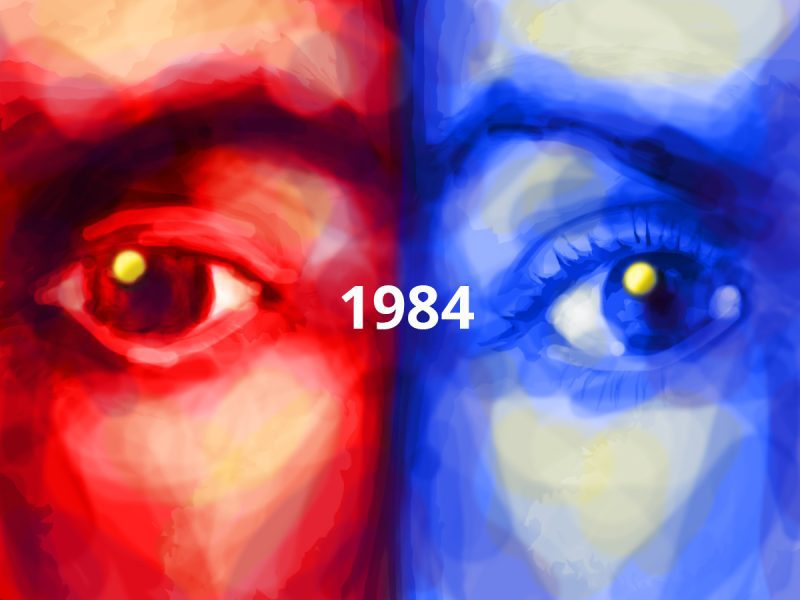
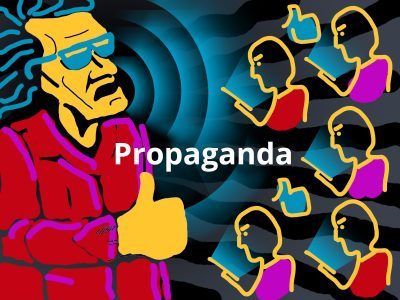
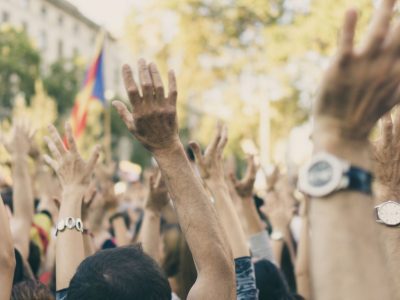
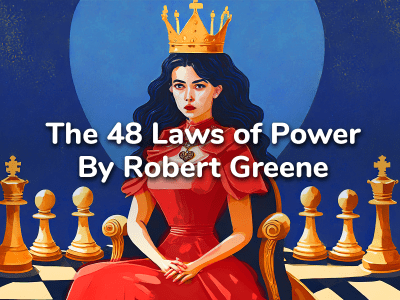
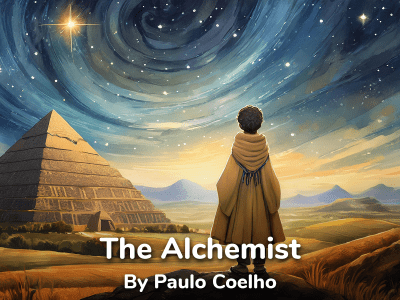
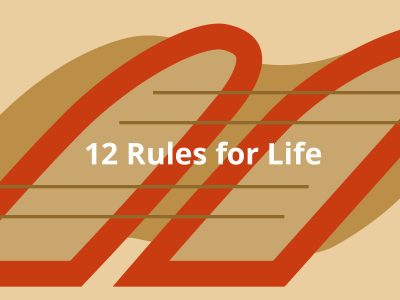


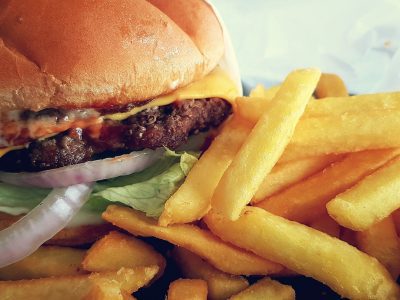
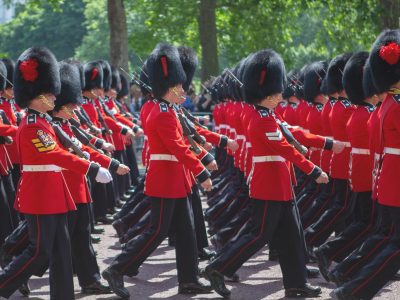
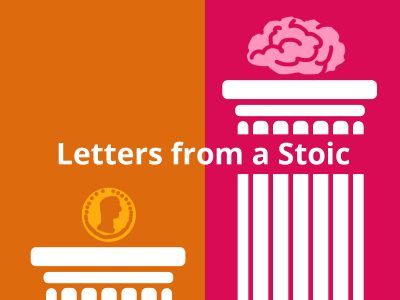
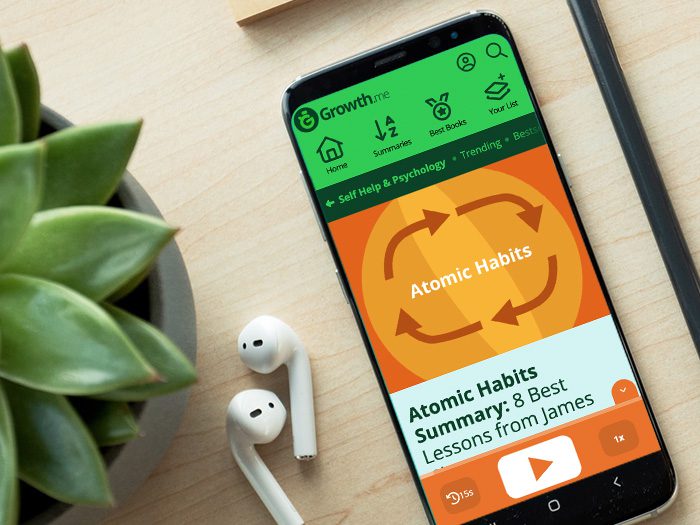
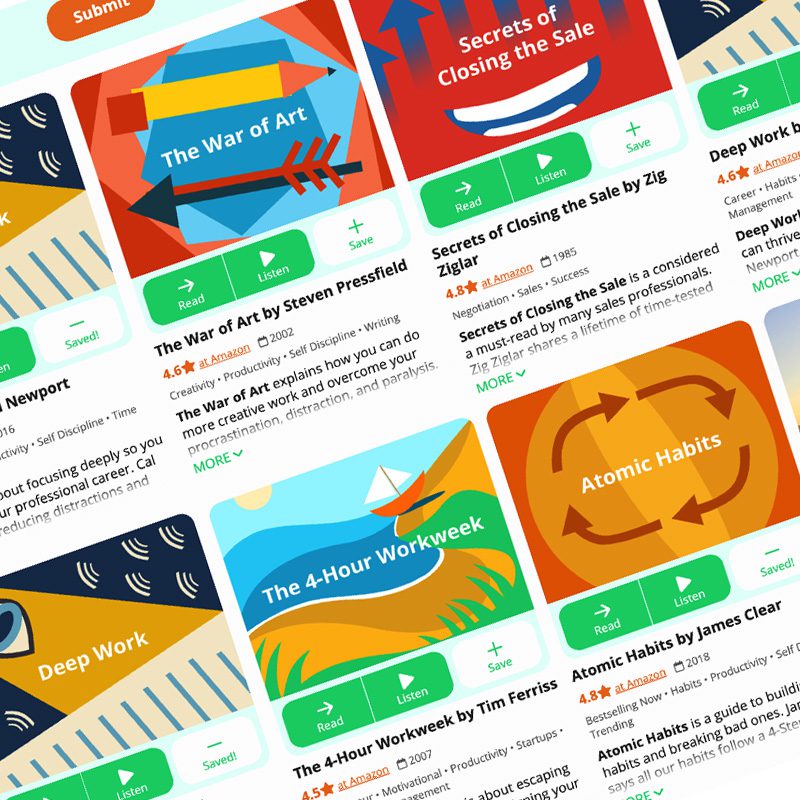
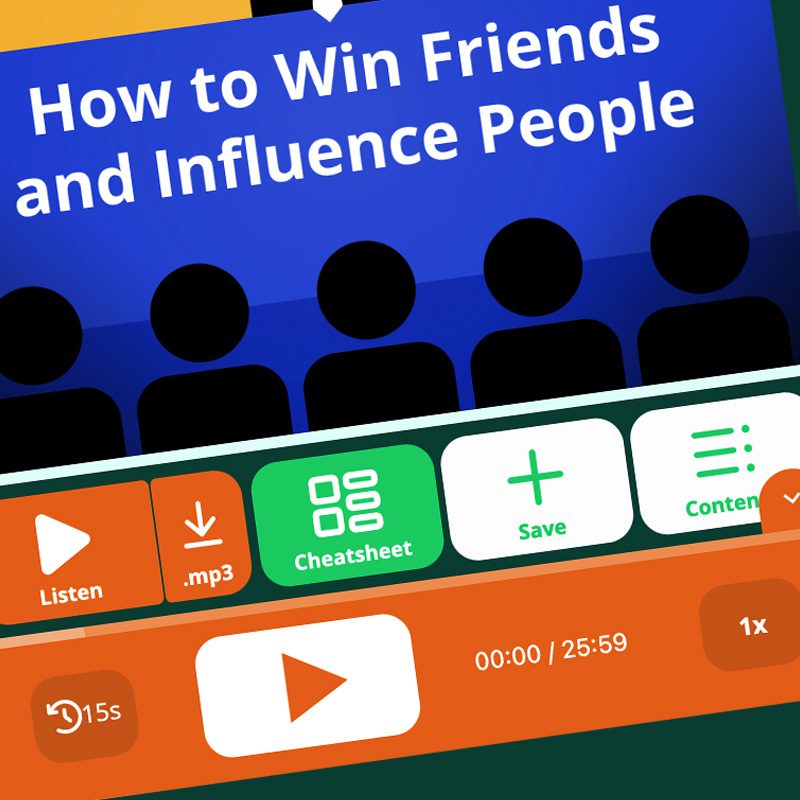
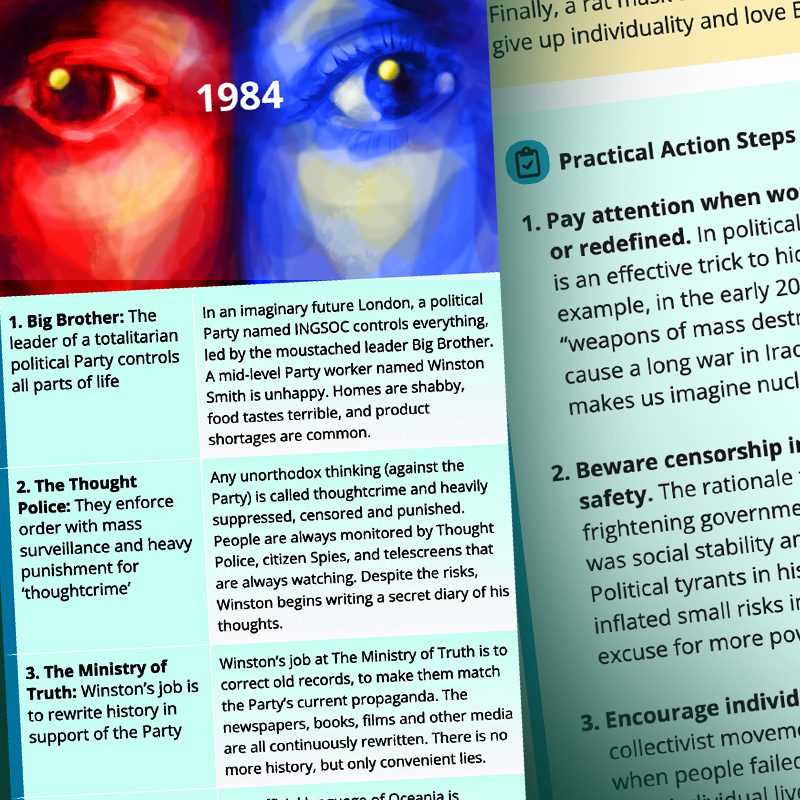


Community Notes